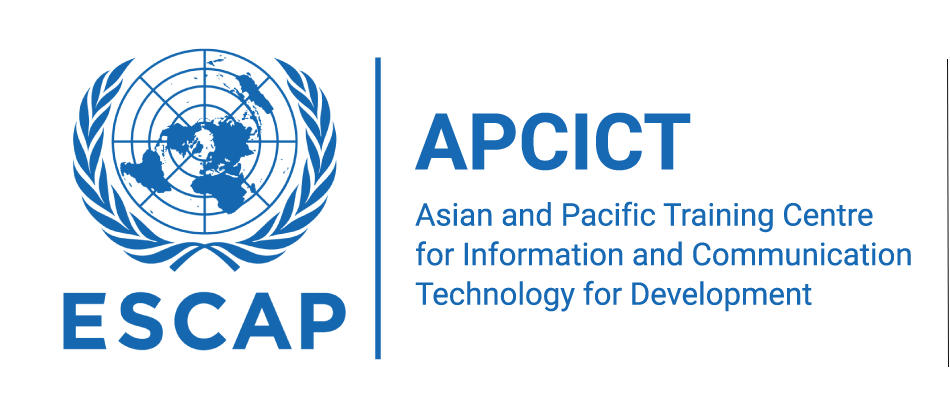Coinciding with its second anniversary and a major global meeting on the economic impact of the Internet, the United Nations Asian and Pacific Training Centre for Information and Communication Technology for Development (UN-APCICT), a regional institute of the United Nations Economic and Social Commission for Asia-Pacific based in Incheon, Republic of Korea, is today holding a global forum and launching two events aimed at promoting the use of information and communication technologies (ICT) for national development.
Press Release No. G/32/2008
INCHEON, Republic of Korea (UN ESCAP Information Services) - Coinciding with its second anniversary and a major global meeting on the economic impact of the Internet, the United Nations Asian and Pacific Training Centre for Information and Communication Technology for Development (UN-APCICT), a regional institute of the United Nations Economic and Social Commission for Asia-Pacific based in Incheon, Republic of Korea, is today holding a global forum and launching two events aimed at promoting the use of information and communication technologies (ICT) for national development.
These events are in support of the OECD Ministerial Meeting on the Future of the Internet Economy which takes place today in Seoul, Republic of Korea. About 2,000 delegates, including ministers from more than 40 countries, are attending the meeting which focuses on ways in which the Internet economy can enhance social and economic development.
Forum explores potential of Internet in advancing development
The Global Forum, organized in support of the OECD meeting and entitled Building the Inclusive Internet Economy - Developing Countries Perspectives, seeks to channel the perspectives of developing countries to the ministerial meeting.
A key ICT pioneer, Indonesia’s Minister of Communication and Information technology, Dr. Mohammad Nuh, will deliver the keynote speech and provide an overview of the challenges faced by developing countries in today and tomorrow’s Internet economy. He will also provide a summary of what policies and practices have worked in promoting the application of ICT for achieving the Millennium Development Goals from the perspective of a developing nation.
Training programme enhances national ICT capacities
One of the events which APCICT is launching is a new training programme, entitled the Academy of ICT Essentials for Government Leaders. APCICT developed the programme because many government officials in the region do not have the required knowledge to enable them to harness the potential of ICTs for national development.
The Academy is comprised of eight modules ranging from basic to more advanced topics on ICT for development that aims to equip policy makers and other government officials with the essential knowledge and skills to fully leverage opportunities presented by ICTs to achieve national development goals and bridge the digital divide.
The first training course for National Training Institutions runs between 16-28 June with more than 40 people from 20 countries in the region attending. The training sessions will focus on the linkage between ICT applications and development, ICT policy-making processes, e-government applications, and ICT project management and funding.
Supporting the Academy is an online distance learning platform - the APCICT Virtual Academy or AVA – which is scheduled to be launched later this year. On AVA, all course materials will be available for free download, and for customization and localization if necessary.
A number of national training institutes and regional development agencies, including the United Nations Economic Commission for Africa and the Ghana-India Kofi Annan Centre of Excellence in ICT, are already working with APCICT to adapt and incorporate the modules as part of their training curriculum.
Online platform facilitates knowledge sharing in the region
The other new initiative launched today by APCICT – the e-Collaborative Hub or e-Co Hub – addresses the need for an online platform for policy makers, educators and practitioners to share knowledge on using ICT for development.
The e-Co Hub is aimed at reducing the Asia-Pacific region’s “digital divide” which to a large extent results from a lack of an effective and coordinated mechanism to share and acquire capacity building resources such as training materials, guidelines and books.
The e-Co Hub can be used to build partnerships and collaborate in updating/customizing training materials, delivering them, and sharing lessons learned in managing capacity building initiatives on ICT for development to improve lives, reduce poverty and empower people. e-Co Hub can also build bridges between trainees and trainers, and enhance the learning and teaching experience.
Related Links
OECD Ministerial Meeting on the Future of the Internet Economy



